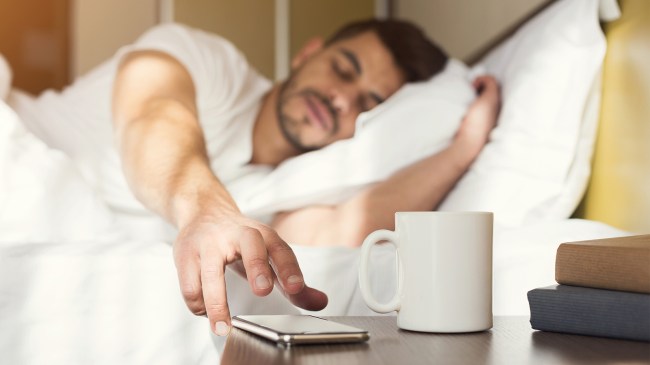iStockphoto
Most people rely on their phone to wake them up in the morning, but if you use your iPhone to jolt you out of a good night’s rest, you may want to figure out a backup plan as Apple attempts to address an issue that’s been raised by a number of owners.
It’s kind of hard to believe we once lived in a world where there was no widespread way to reliably ensure you’d wake up at a certain time. There are apocryphal tales about people inserting nails into burning candles and members of Native American tribes that chugged water before going to sleep so their bladder would rouse them, but it seems like most people simply put their trust in a natural sleep cycle.
The concept of the alarm clock can be traced back to the ancient Greeks and Romans, but it took society a while to reach a point where most people kept one next to their bed in order to wake up at the correct hour.
The importance of those devices was highlighted during World World II, as the United States government reversed a ban on their production after realizing the decision to redirect materials used to make them had served as a tangible detriment to a functioning industrial society.
Nowadays, having a dedicated alarm clock is pretty unnecessary if you also have a cellphone that’s capable of performing the exact same function, and I’m going to assume the vast majority of the more than 150 million Americans who own an iPhone set an alarm before they go to sleep at night.
However, The Today Show reports a number of iPhone owners have recently…raised the alarm (I’m sorry) after theirs failed to go off at an adequate volume, which obviously has the potential to create some unfortunate situations.
If your alarm hasn’t gone off recently, you’re not alone ⏰
Apple says it is aware of an issue causing some iPhone alarms to not play the expected sound and says it is working on a fix. @emilieikedanbc reports on the details. pic.twitter.com/poCvYwLvgg
— TODAY (@TODAYshow) April 30, 2024
Apple said it was aware of the issue but declined to offer any specific insight into what the problem is while pledging it was working on a fix.
Some people believe it could be linked to the “Attention Aware Features,” which lower the volume when your iPhone believes you’re looking at your screen, and if you don’t want to take any chances, it can be turned off by going to the Face ID & Passcode section in the Settings menu (you may also want to double-check the “Ringtone And Alert Volume” slider is turned up all the way in the Sound & Haptics tab).

